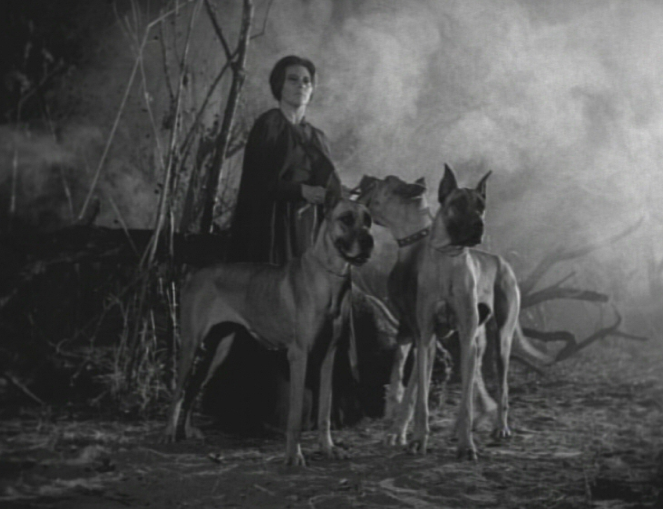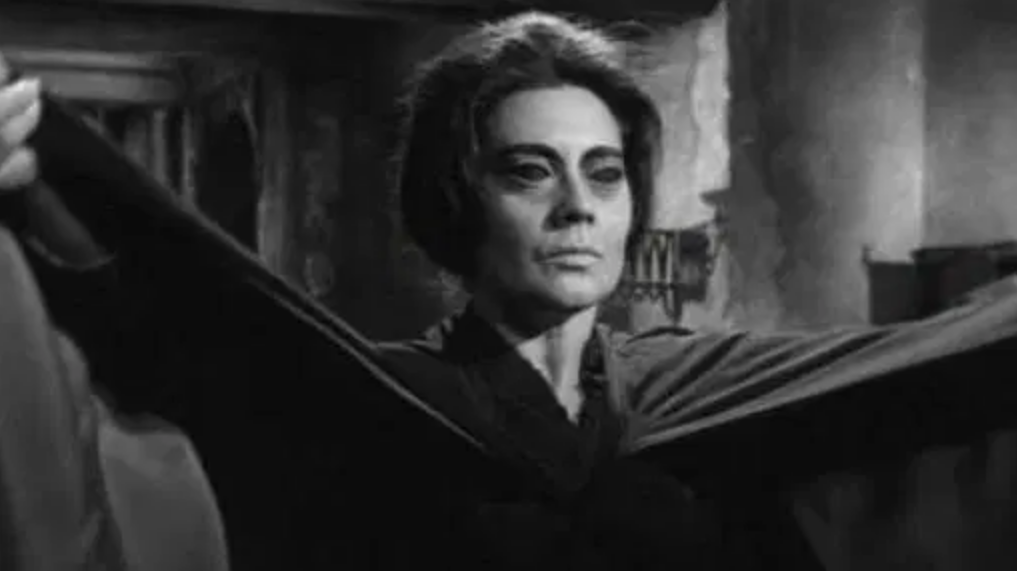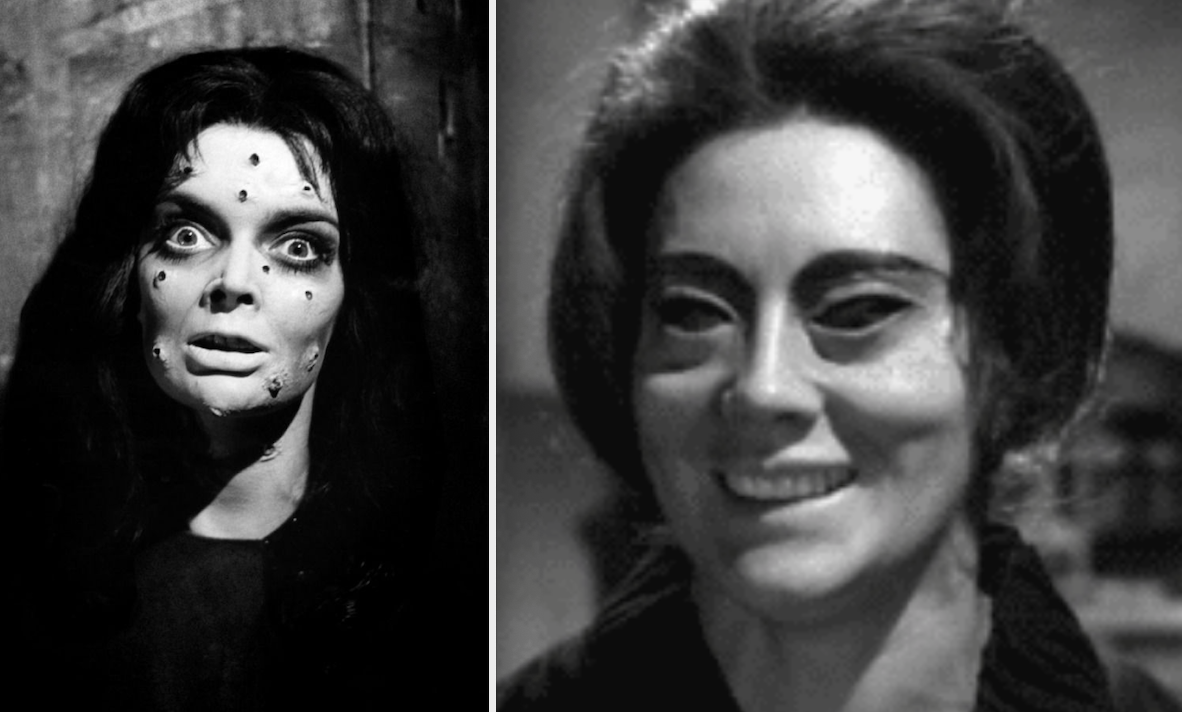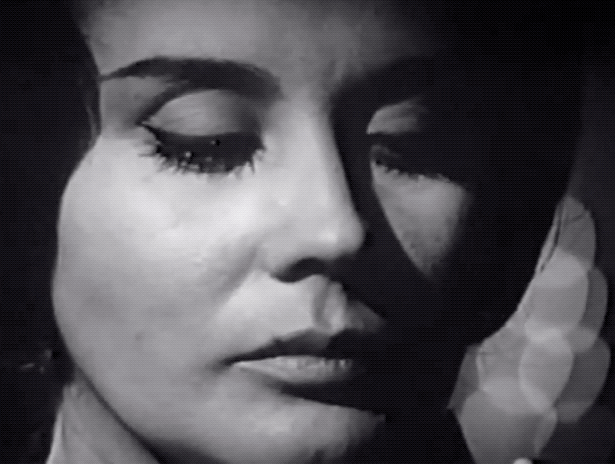by Jason Adams

Happy Cinco de Mayo, everyone! For this week's edition of our "Great Moments in Horror Actressing" series we're tackling the five-century-old Mexican folk-tale of "La Llorona" aka "The Weeping Woman," who's become perhaps the most iconic of all their legends and whose terrifying presence has graced the screen at least a dozen times, up to and including last year's middling Blumhouse production (part of their ever expanding and worsening Conjuring Universe) titled The Curse of la Llorona.
We will not be talking that most recent version though, because despite perfectly acceptable screaming from a slumming Linda Cardellini (an actress I very much like)...
I could never cotton to this very Mexican story being twisted into yet more "white lady saves her children from the threatening brown people" propaganda. I say no thank you. Instead we're eyeing the 1963 version titled The Curse of the Crying Woman that was directed by and starred actual Mexicans, including what ought to be an iconic horror visage -- that of a diabolically eye-slitted Rita Macedo as the witch Selma intent on harnassing and weilding the vengeance of La Llorona herself.

I should first step back and school you in the tale of La Llorona though, in case anyone's unfamiliar -- the story, having been around for you know five centuries, has some variations, but basically it's about a beautiful young woman named Maria who meets and marries a man from out of town and has his two boy children. The man eventually reveals himself to be no good, and in her despair Maria drowns her two sons and then herself, and she's then cursed to wander the Earth for eternity trying to (and failing) find the souls of her children. In the way of all good cautionary tales this morphs into her stealing away all children who're out late at night. There are fun little details scattered about -- my favorite is that La Llorona's weeping sounds loud when she is far away and soft when she is closer.
There have been straight movie re-tellings of that tale a few times but I'm most partial to director Rafael Baledón's 1963 film, which only nods at all of that as background -- here a young woman called Amelia (Rosita Arenas) inherits a cursed old mansion that's kept by her scary Aunt Selma (Macedo) only to find out that hey, owning a cursed old mansion run by a scary aunt ain't all it's cracked up to be. The film's dripping in the cobwebbed Gothic style of 1930s Universal movies -- lots of bookcases sliding open to reveal hidden passages and terrifying ghouls appearing in a mirror; it is very much of a piece with its Italian contemporary, Mario Bava's Black Sunday starring the iconic Barbara Steele as the wronged witch unleashed.

And as with Black Sunday, which opens with Steele's gruesome torture centuries earlier, The Curse of the Crying Woman introduces its fiendish villainess in its very first frames -- before Amelia rolls into town and meets her Aunt Selma, before the opening credits have even rolled, we've already had the distinct pleasure, and it's a doozy. The night skies fill with wails and there she stands in the shadowy fog, her eyes sliced as wounds, her cloaked chest heaving somewhere between torment and sexual passion, with a phalanx of mad bloodhounds strapped to her side. Within moments she'll have rained down horrors on a passing group of travelers, culminating in the brutal sight of a carriage wheel run right across the throat of a sweet young woman -- Aunt Selma, y'all, is a damn fright!
To be clear Macedo is playing all of this to the back seats but it's a tremendously fun performance, filled with arched eyebrows and cackling, so much cackling -- she plays the pipe organ and she means it, dammit. The connections back to the legend of La Llorona are mostly tenuous -- turns out Selma and Amelia are part of the original woman's bloodline and are cursed to carry her vengeance through the centuries, although it hardly seems a curse for Selma, who revels in haughty destruction. Seems to me a feminist enough inversion of the "wronged woman gone mad" tale-as-old-as-time -- Macedo unleashes the hounds and hunts down every bastard who doubts her, and I love to watch it.
